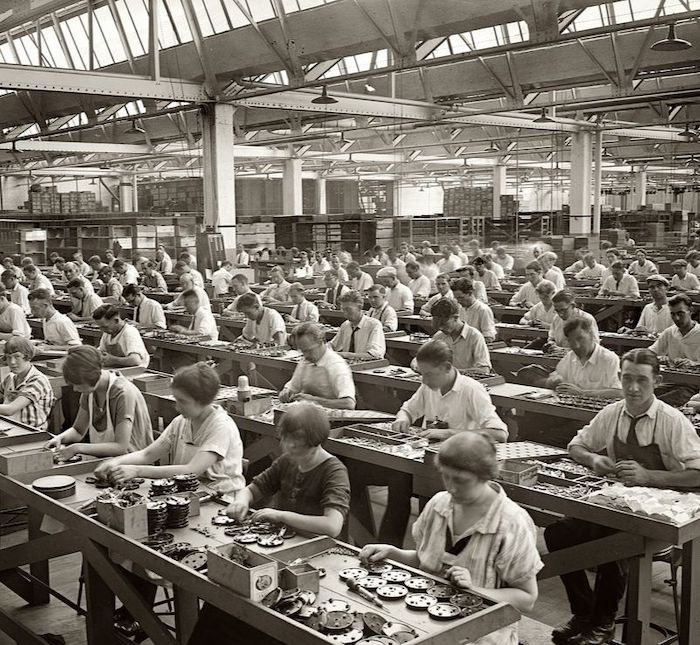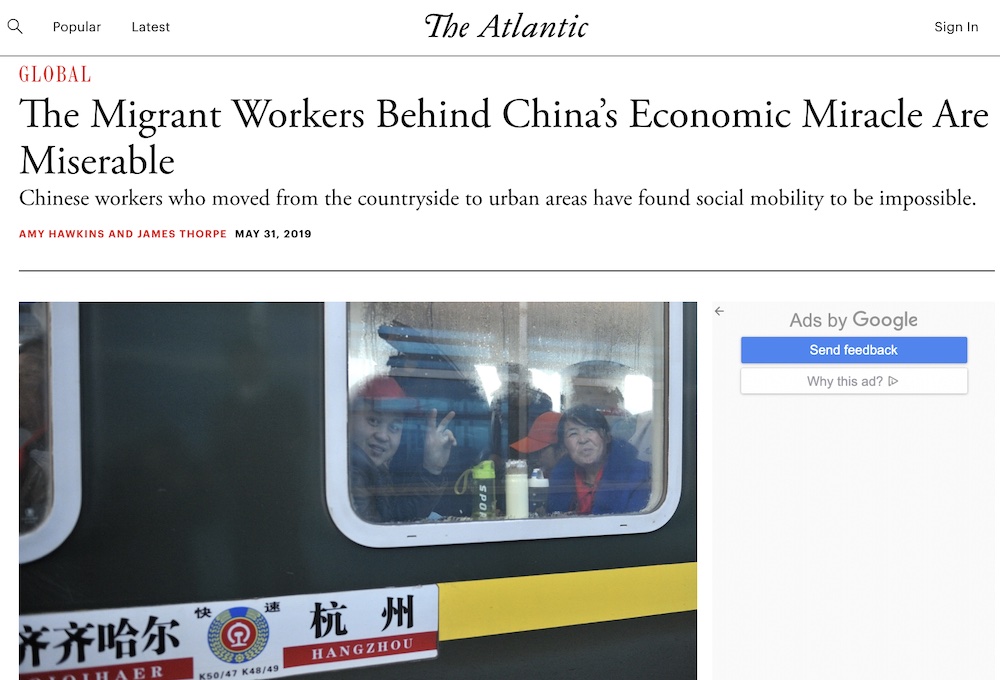
All over the world, even in China, this is happening. It has nothing to do with the NEP or the failure of the NEP or the attitude of the Malays. It is about the failure and injustice of capitalism and the misery of the working class. It is just coincidental that, in Malaysia, capitalism means Chinese and working class means Malays. In China, BOTH mean Chinese. So, who do you blame in China? The United States?
NO HOLDS BARRED
Raja Petra Kamarudin
“I am sure Dr Mahathir would agree that the New Economic Policy (NEP) has failed to achieve its target; but who failed the NEP? He had 22 years to fix the inequality that existed back then, but now, he is saying that there is a wider gap between the rich non-Malays and the poor Malays!” said Stephen Ng in Focus Malaysia.
Stephen Ng then went on to say:
One cannot help but admire the hardworking young men who are now working as delivery boys; so what happened to their economic wellbeing after all these years?
Into whose pockets did the country’s wealth and taxpayers’ money go? Why is it that for every major contract, there are so many levels of middlemen, and by the time it reaches the sub-contractors, there is left only the bones to be chewed?
I am sure Dr Mahathir would agree that the New Economic Policy (NEP) has failed to achieve its target; but who failed the NEP? (READ MORE HERE)

Before the NEP, Malays did not go to school, they became fishermen
Here we go again: a Chinese discussing the failure of the New Economic Policy (NEP). But then what is the yardstick he is using to measure this success or failure? Seen from the eyes of Stephen Ng, it is the Chinese yardstick.
You cannot use a Chinese yardstick to measure a Malay. There is a saying: you can take the Malay out of the kampung, but you cannot take the kampung out of the Malay.
In short, Malays are kampung creatures while Chinese are town creatures. So, when you compare kampung Malays to town Chinese, and you measure the “failure” of kampung Malays in comparison to “successful” town Chinese, what you get is a thesis like what Stephen Ng wrote (HERE).
I am not going to bore you with statistics, but compare the literacy rate, infant mortality rate, etc., of the Malays in 1951 with the Malays of today, 70 years later.
That is the success of the NEP.

Is it the NEP or capitalism exploiting the working class which is to be blamed for this
In 1951, very few Malays went to school. So, when they were 13 or 14, they became farmers and fishermen. Today, all Malays go to school. So no one wants to become farmers and fishermen. They migrate to towns looking for jobs.
That is the success of the NEP: all Malays go to school and can read and write (so they do not want to become farmers and fishermen). But how many can find jobs in the towns and cities?
Is this the failure of the NEP? Is it the failure of the state governments of Kelantan, Terengganu, Kedah, Perlis, Pahang, etc? No, it is the success of the NEP. The NEP gave the Malays an education. So they want something better than just becoming farmers and fishermen.
And this is not just a problem for Malaysia. All over the world, even in China, they are facing the same problem. You give education to the people, so they no longer want to become farmers and fishermen. They migrate to the cities seeking better jobs.
This is not something new just since 1970-1990 (as what Stephen Ng is suggesting). It started back in the mid-1700s and it swept all over Europe in what we now call the Industrial Revolution. It arrived in Malaya about 100 years later with the migration of the mainland Chinese and that triggered the creation of towns such as Kuala Lumpur, Penang and Singapore.

The Industrial Revolution started in England in the 1700s, swept across Europe from 1760 to 1840, and arrived in Malaya in the 1800s
This is NOT a Malay or NEP issue. It is an Industrial Revolution issue (which started in Europe) from 1760 to 1840 — which also triggered the creation of towns in Malaya during that same period (Kuala Lumpur, Penang, Singapore and many more).
So, okay, the Chinese live in towns and are prosperous while the Malays live in the kampung and are not prosperous. Rephrase that. The capitalists live in towns while the working class live in the kampung. And since the jobs are in the towns and not in the kampung, the working class migrate to the towns seeking jobs.

Rural Chinese face the same “social mobility” problem that the rural Malays face
All over the world, even in China, this is happening. It has nothing to do with the NEP or the failure of the NEP or the attitude of the Malays. It is about the failure and injustice of capitalism and the misery of the working class. It is just coincidental that, in Malaysia, capitalism means Chinese and working class means Malays. In China, BOTH mean Chinese. So who do you blame in China? The United States?



No comments:
Post a Comment
Note: Only a member of this blog may post a comment.